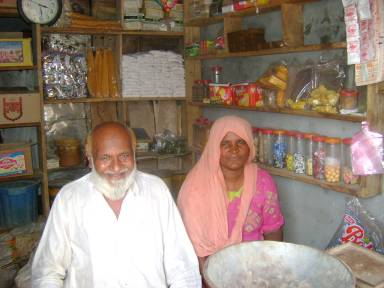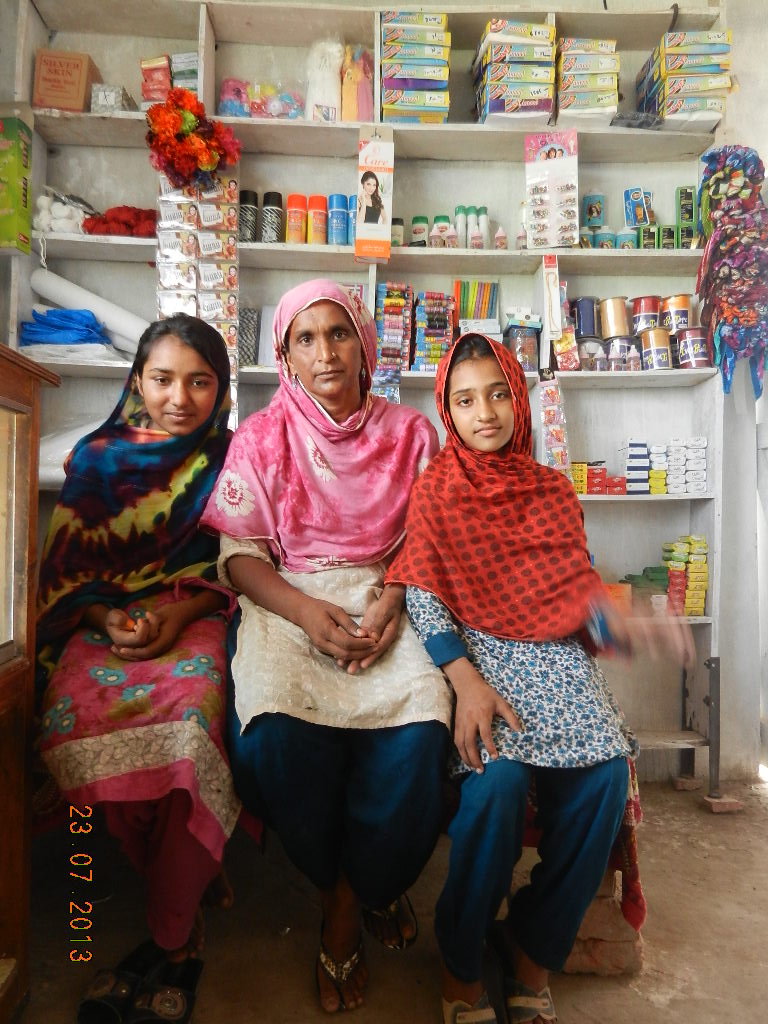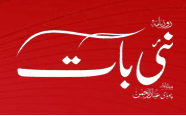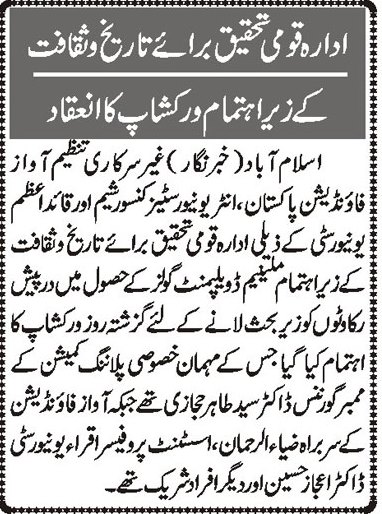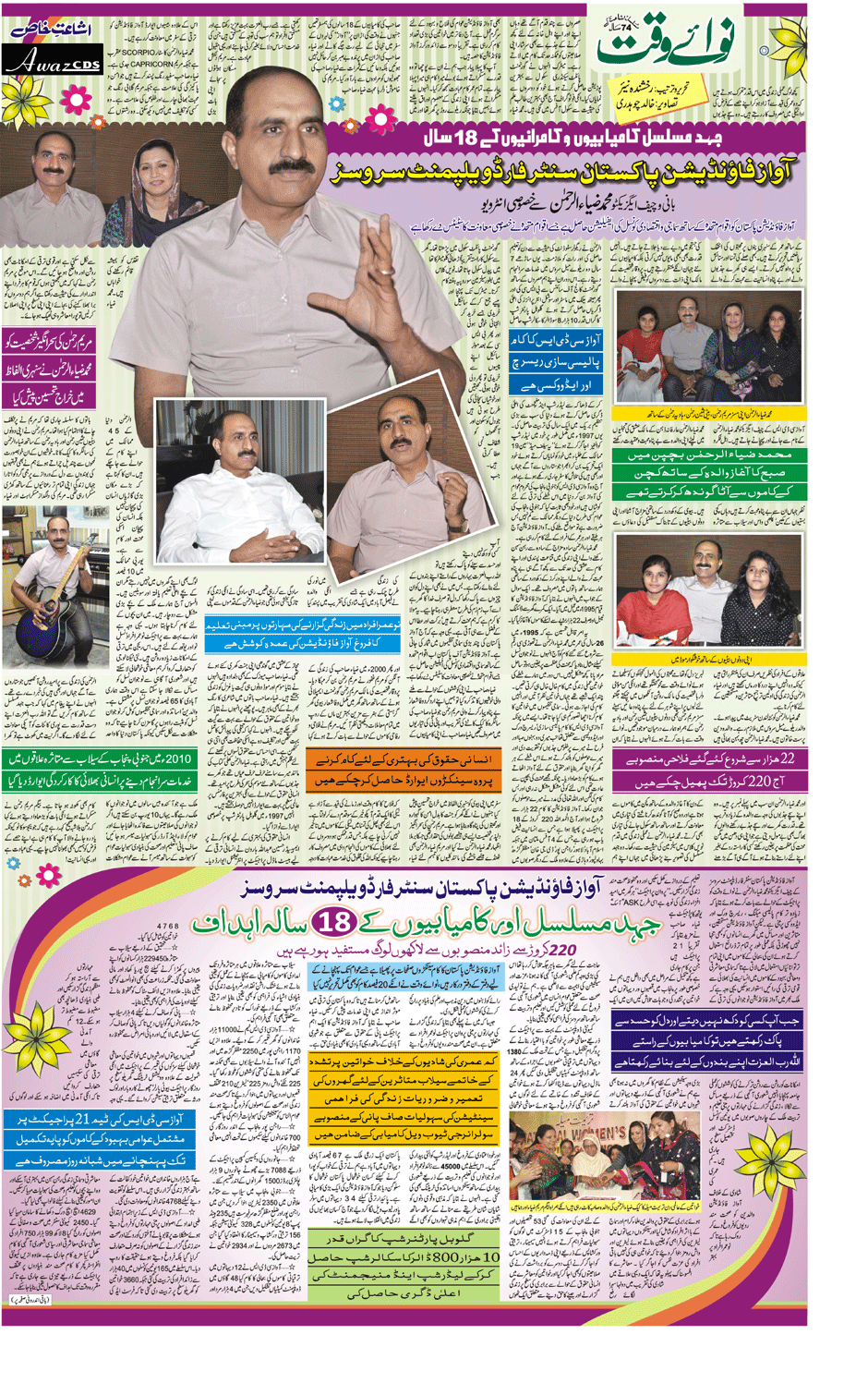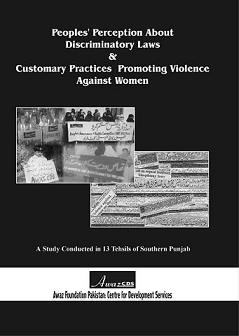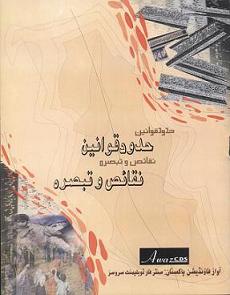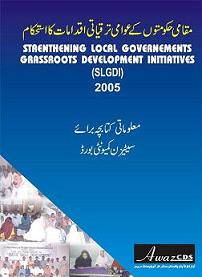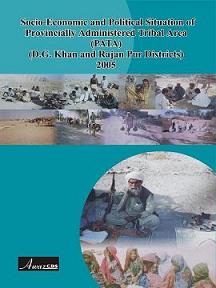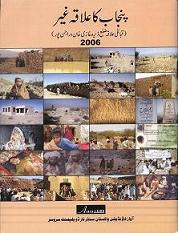Our correspondent
Saturday, November 08, 2014
From Print Edition
Islamabad
Speakers emphasised on rethinking and revision of curriculum, especially in Pakistan Studies and Islamic Studies, and inclusion of topics related to socio-economic development and women’s empowerment in Pakistan.
The demand came forward at a dialogue ‘Pakistan Millennium Development Goals Status and Post-2015 Development Framework’ jointly organised by AWAZCDS-Pakistan, Pakistan Development Alliance, Global Call to Action against Poverty (GCAP) Pakistan, Inter University Consortium for Promotion of Social Sciences (IUPCSS) and National Institute Historical and Cultural Research- Qaud-e-Azam University on Friday.
The speakers said that only 500 days are remaining for the culmination of Millennium Development Goals (MDGs) that requires attention of all relevant stakeholders and to do the evaluation of Pakistan’s commitments in order to set right targets in post-2015 regime.
“World has already started setting targets for Sustainable Development Goals whereas Pakistan should contribute in it at this planning stage to set realistic targets for future,” they maintained. Quaid-i-Azam University Vice Chancellor Dr Eatzaz Ahmad informed that civic engagement would be taught as compulsory subject at Quaid-i-Azam University, Islamabad.
Member Governance Planning Commission Dr. Syed Tahir Hijazi said that MDGs were directly related to common people of Pakistan. He underlined the importance of role of academicians and higher education institutions in creating awareness about MDGs and post 2015 development framework. He also assured the cooperation of planning commission in this regard.
Convener Pakistan Development Alliance and Regional Coordinator Global Call to Action Against Poverty Mohammad Zia Ur Rehman informed that Pakistan is far away from achieving 16 targets set in the year 2000 and to be realised in 2015, under the Millennium Development Goals (MDGs) that are a set of 8 goals adopted by 189 countries, including Pakistan in 2000 and to be achieved by 2015.
“Pakistan is spending less 2 per cent of its GDP on realisation of MDGs whereas it requires spending more than 10 per cent of its GDP for next ten years to achieve the target”, he added.
Rutgers WFP Country Director Qadeer Baig underlined over the importance of collaborative efforts by civil society, academicians, politicians, policy makers are required in order to improve social indicators of the country.
Assistant Professor Iqra University Islamabad Dr. Ejaz Hussain was of the view that natural and manmade disasters, economic development, political and institutional landscape and social constraints were the key challenges in achieving MDGs. He suggested good governance, rule of law, peace and security; inclusive economic growth and involvement of stakeholders could be helpful in achieving MDGs.
A documentary on current status of MDGs was also screened on the occasion.
[button size=”small” color=”blue” style=”none” new_window=”false” link=”http://www.thenews.com.pk/Todays-News-6-282931-Inclusion-of-womens-empowerment-topics-in-curriculum-demanded”]View Source[/button]
